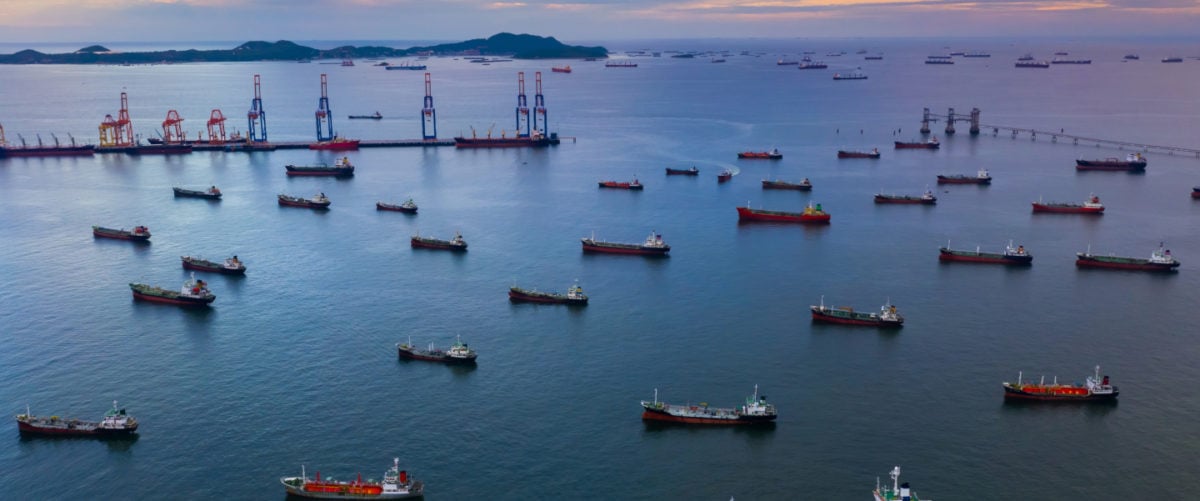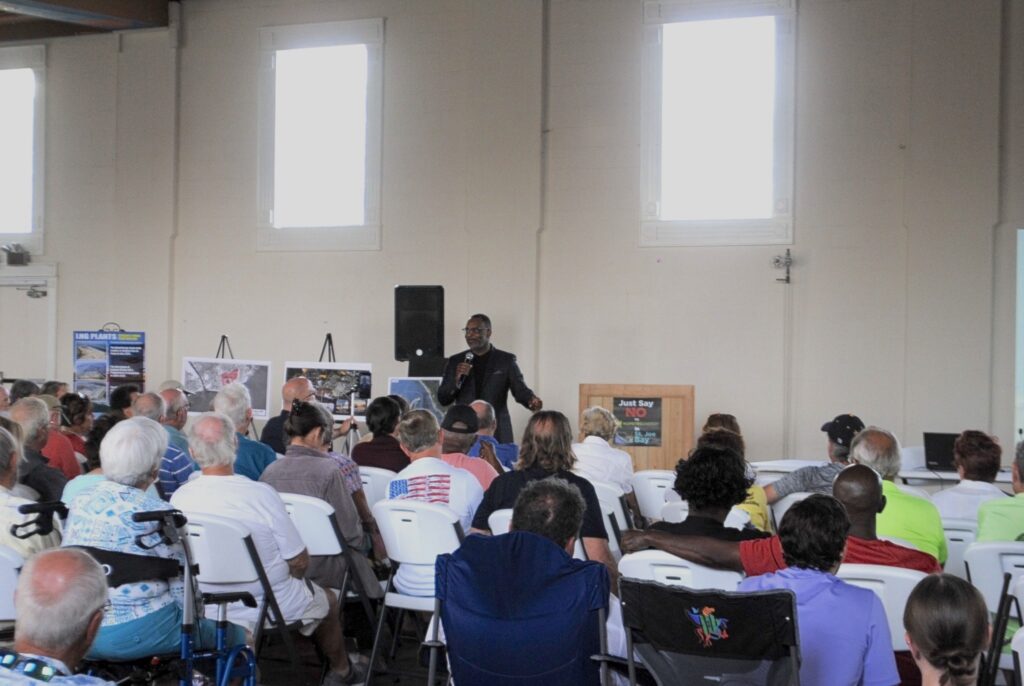How This Florida Town Stopped Plans for a Liquefied Natural Gas Plant
Published Aug 7, 2023

When Port St. Joe, Florida, learned of plans for an LNG plant in their backyard, we helped residents to organize a fast, powerful campaign that shut it down.
The residents of North Port St. Joe, Florida had big plans for reviving their town when they learned of a proposal for a liquefied natural gas (LNG) plant nearby.
The closing of a paper mill in town had brought an economic downturn, but in recent years, community members had created a redevelopment plan. They secured grants that would help them rebuild and clean up the mill’s pollution. They were preparing for a new era — but Nopetro, a Miami-based energy company, had other ideas.
Late last year, residents discovered Nopetro was working with officials to build a facility that would convert natural gas to liquid. The company would then transport its liquefied natural gas (LNG) just a quarter-mile to the town’s docks for export abroad.
Community members knew this plant would bring pollution, heavy traffic, and risk of explosive accidents. The plant also threatened to crowd and endanger the small, beautiful St. Joe’s Bay. In response, they quickly organized to grow public opposition and shut the project down.
Food & Water Watch Helps Set Strategy and Gather Allies
If Nopetro and its supporters in office had their way, the plant would have gone up without a word. The company proposed to build just far enough from the shoreline to avoid federal oversight. That also meant it would narrowly swerve environmental review and public input requirements.
Sneaky maneuvers like this are common for dirty projects. We saw it in a previous Florida LNG proposal, which we also helped to shut down. So when Food & Water Watch caught wind of the fight in Port St. Joe, we reached out to community members already hard at work. Together, we developed a strategy for a winning campaign.
That meant setting up weekly meetings and short-, mid-, and long-term goals. We also helped community members to create a coalition with other local organizations not just to stop this project, but to work toward transformative redevelopment, too.
Through the spring, we joined the Gulf County Citizens’ Coalition for a Healthy Future to continue building pressure against the Nopetro plant.
We knew this pressure had to come from the public and elected leaders. That included the City and County Commissions, which could approve needed permits for the project to move forward. To pressure City and County to deny those permits, we helped organize residents to speak and present at bi-monthly meetings.
Stay updated on fights like these and the latest from Food & Water Watch!
Community Members Build Opposition at the Ballot Box
Though the County hadn’t approved the permit, it had released a statement suggesting it was in favor of Nopetro’s plans. So the Gulf County Citizens’ Coalition turned to the City Commission, where it found the perfect opportunity.
Of the City’s five seats, one commissioner was against the project, one was in favor, and two were on the fence. That included the Mayor, who was up for re-election. There was also a vacant seat on the Commission, and elections were on the horizon.
The coalition identified candidates who would oppose the plant for both the mayoral and City commissioner races. Its members then knocked on hundreds of doors and tabled every week at local events, driving folks to the polls in support of their candidates.
Although neither candidate won, community members’ work pressured other candidates to speak on the Nopetro proposal. The winner of the City Commission’s vacant seat included opposition to the plant in his platform. Meanwhile, the Mayor began meeting with the coalition to hear their concerns.
Saying “No Thanks” to Nopetro
After the elections, Food & Water Watch rejoined the effort and helped the coalition build on the momentum they’d created. We helped organize a huge community meeting in June and spread the word by placing a hundred yard signs, engaging local media, and tabling at the weekly farmer’s market.
In a small community of a few thousand folks, 200 attended the event, including the Mayor. Experts and guests from impacted LNG areas around the country came to speak.

By the end of the day, we collected 150 handwritten postcards to the City and County opposing the project. Food & Water Watch also helped pull six media hits, raising publicity for the campaign.
Then, in early July, Nopetro canceled its plans for the plant.
“Stopping Nopetro from bringing LNG to Port St. Joe is a monumental win,” said Dannie Bolden, vice president of the North Port St. Joe Project Area Coalition. “Not only have we prevented a dangerous industry from destroying our community, we feel empowered to use the relationships and skills we’ve developed in this fight to embrace and lead the redevelopment of our region.”
LNG Is Coming for Towns Across the Country
Florida has become a flashpoint for the recently booming U.S. LNG industry. While the climate crisis grows more dire and the need to move off fossil fuels more urgent, the U.S. is ramping up LNG capacity at a reckless rate.
When the pandemic and war in Ukraine rocked the global gas market, oil and gas companies jumped on LNG. It served as both a quick buck and a route to extend the life of their dying industries. From 2014 (when the country exported no LNG at all) to today, the U.S. became the top LNG exporter in the world.
Now, LNG projects are popping up along the Gulf Coast, especially in low-income communities and communities of color that have already suffered from polluting industries. In Port St. Joe, particularly the majority-Black north side of town, the now-retired paper mill spewed dangerous air and water pollution for decades before Nopetro came knocking.
But we can break this cycle of pollution and community disempowerment. The victory in Port St. Joe lights one pathway to keeping dirty projects like Nopetro’s out of our backyards.
Moving Toward a Brighter Future in Port St. Joe and Beyond
The work in Port St. Joe isn’t over. The town is building on recent community organizing to keep an eye on future City and County elections. Additionally, the Gulf County Citizens’ Coalition for a Healthy Future is working to ensure community-driven redevelopment in Port St. Joe and throughout the region.
Organizations including Public Citizen, ReThink Energy Florida, Earth Ethics, Healthy Gulf, CLEO Institute, and Food & Water Watch came together with the community to achieve this win, showing what’s possible in other places targeted for LNG.
When we engage our neighbors and build power, we can win. Dirty, polluting projects aren’t inevitable, and we can meaningfully reshape the future of our communities.

Time to face it —~it’s people or plastics.~We can’t have both.
Become a plastic pollution fighter this Earth~ Day and have your gift MATCHED $3-to-$1!
Enjoyed this article?
Sign up for updates.
TO TOP


